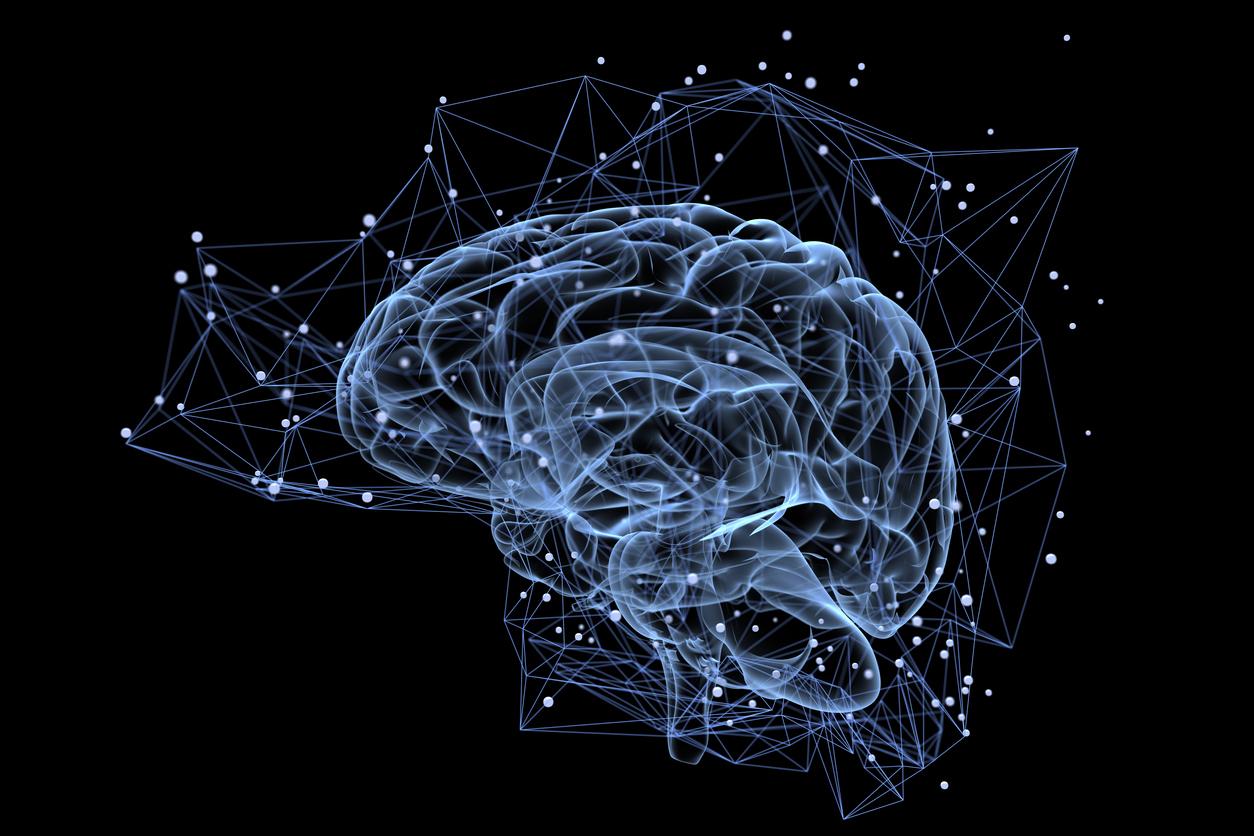Researchers have succeeded in quantifying the speed of human thought, the rate at which our brain filters the mass of data coming from our senses to perceive the world and act.

- A team of Caltech researchers discovered that our brains process information at a speed of just 10 bits per second, while our senses collect data at a hundred billion bits per second.
- This paradox is intriguing: although our brain has 85 billion neurons, it seems limited to a single mental “track” at a time. This slowness could be explained by evolution, with our ancestors using their brains to navigate and survive.
- These limitations call into question futuristic projects, such as brain-computer interfaces.
How quickly does our brain process the information around us? A team of American researchers from the California Institute of Technology, or Caltech, recently put a number on the speed of our thought: 10 bits per second. This figure, which seems surprisingly low, is in stark contrast to the speed at which our senses collect data from our environment – “a thousand billion bits per second”. These findings, published in the journal Neuronopen up fascinating new avenues to better understand our brain.
The paradoxical slowness of human thought
For comparison, a Wi-Fi connection can transmit around 50 million bits per second. However, our brain “samples” a tiny 10 bits every second. Every moment we filter this data from our senses – an immense stream that our mind reduces to a handful of bits used to perceive the world and act. Why such slowness? “It’s a real enigma”recognize the researchers in a press release. With more than 85 billion neurons in our brain, a third of which are dedicated to complex thinking, the processing potential seems vastly greater. But then, what does our brain do with all this excess capacity?
One of the hypotheses put forward is evolutionary. The first living things with nervous systems used their brains to find food and escape predators. If our thinking developed from these primitive systems, it makes sense that we are limited to following one mental “track” at a time.
“Thinking can be considered as a form of navigation in an abstract space of concepts”specify the scientists. This idea could explain why a chess player considers moves one by one instead of several at once. These mental limitations, far from being defects, could reflect an adaptive optimization of our brain in the face of a relatively slow world.
Consequences on technological progress
This new estimate could slow down certain futuristic ambitions, notes the study. Despite technological advances, it seems that our brains cannot be pushed to go faster. Creating a brain-computer interface to surpass the speed of human communication, for example, would come up against this limit of 10 bits per second.
This research raises as many questions as it offers answers. Why do we have so many neurons but our thinking is so slow? How does the brain filter the billions of bits it receives? Scientists call for continued exploration of these paradoxes to further unravel the mysteries of the brain.















